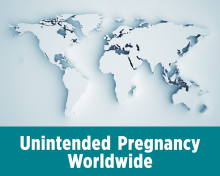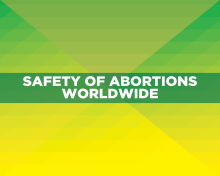Jonathan Bearak, who joined the Guttmacher Institute in 2015, is a sociologist and demographer who studies inequality in social, health and economic outcomes. Dr. Bearak divides his time between global comparative research and analyses specific to the United States. He leads the Institute's keystone study of unintended pregnancy and abortion worldwide. As part of this work, he led the publication of the first-ever set of country-specific estimates, released in partnership with the World Health Organization. He is also focusing on developing a new approach to compare the effectiveness of contraceptive methods. Highlights of his other work at Guttmacher include research on the complex relationship between fertility intentions and women's earnings and estimates of spatial inequality in abortion access.
Dr. Bearak received his PhD in sociology from New York University after earning a BA in political science at Queens College of the City University of New York, with minors in computer science and sociology. While in graduate school, he conducted research in several areas, including the relationship between motherhood and earnings, the sexual double standard and contraception.







